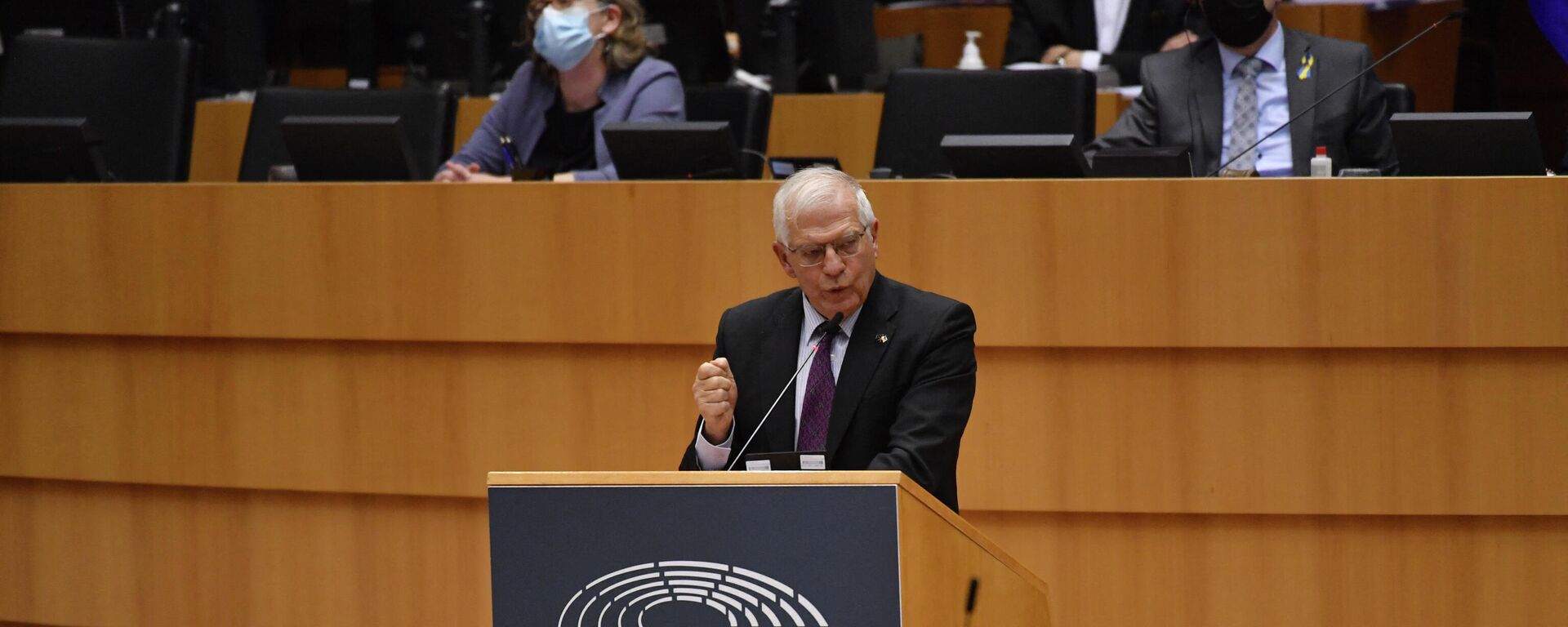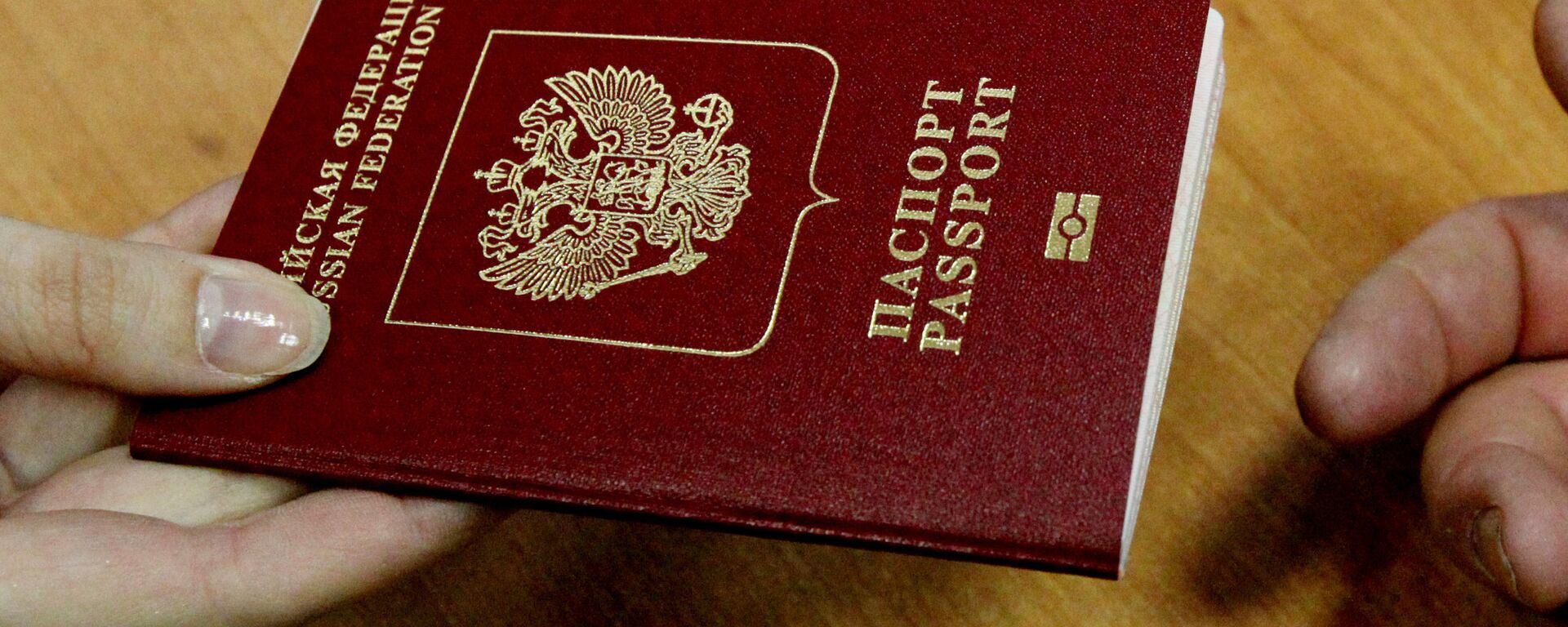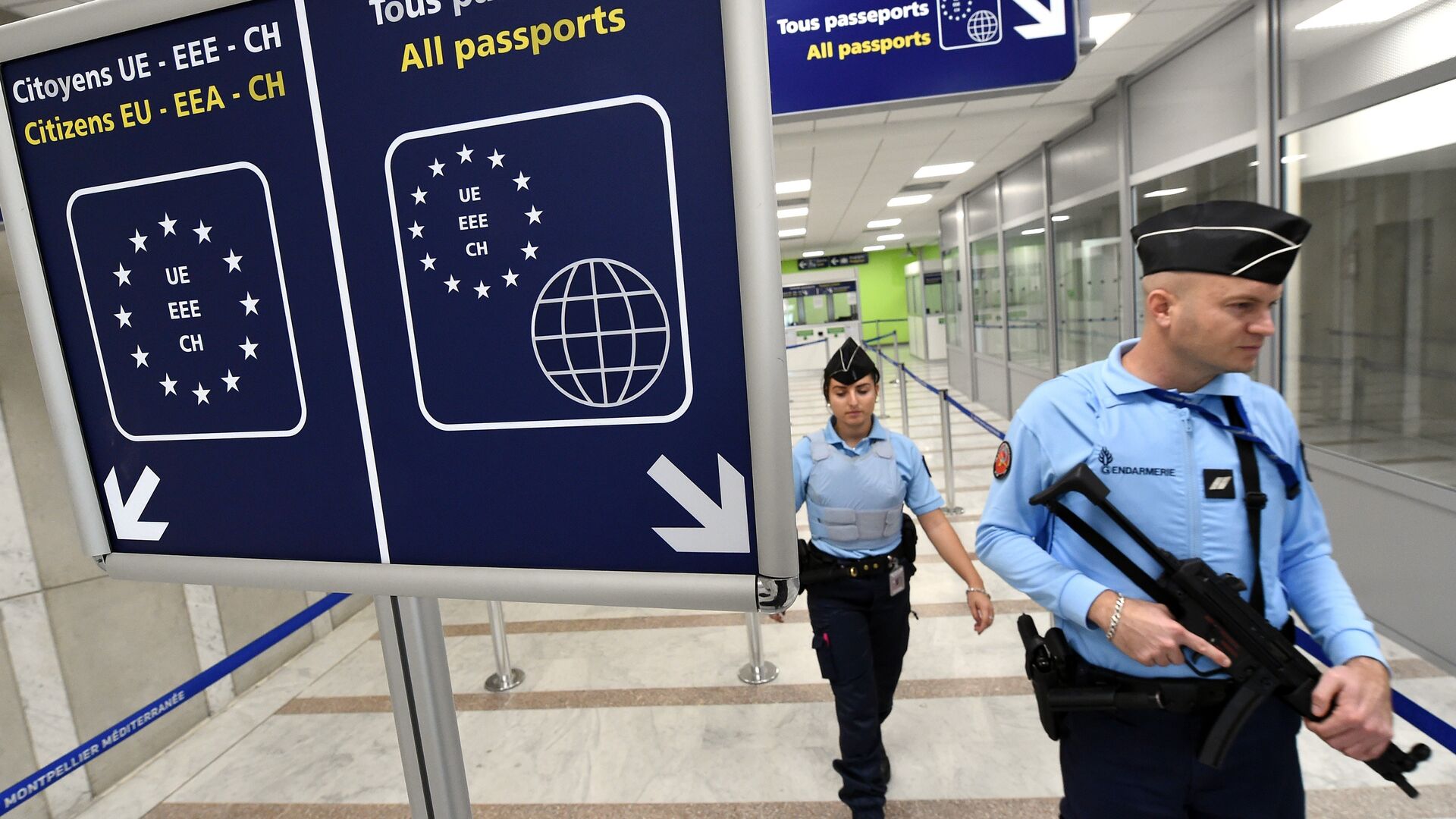https://sputnikglobe.com/20220831/suspension-of-eu-russia-visa-agreement-strikes-an-entire-people-indiscriminately-observer-says-1100243660.html
Suspension of EU-Russia Visa Agreement ‘Strikes an Entire People Indiscriminately’, Observer Says
Suspension of EU-Russia Visa Agreement ‘Strikes an Entire People Indiscriminately’, Observer Says
Sputnik International
European Union foreign policy chief Josep Borrell announced Wednesday that the bloc had agreed to suspend the EU-Russia visa facilitation agreement, a 2007... 31.08.2022, Sputnik International
2022-08-31T19:03+0000
2022-08-31T19:03+0000
2023-02-09T11:44+0000
visa
russia
analysis
european union (eu)
https://cdn1.img.sputnikglobe.com/img/103056/51/1030565177_0:265:4000:2515_1920x0_80_0_0_ba8246a62fafa18d510dd8ab98c08587.jpg
The EU’s move to suspend the visa facilitation agreement with Russia is irrational, immoral, and bodes poorly for the future of European democracy, Swiss politician and journalist Guy Mettan fears.The Swiss journalist fears the implications Wednesday’s decision will have for democracy within the EU, saying the bloc has effectively allowed countries which are not even members, like Ukraine and the UK, as well as certain zealous members, including Poland, the Baltics and Finland, to “drag” it down a “fatal path” of animosity and hostility.“In principle, the superiority of democracy is based on its ability to identify, through a system of deliberation that involves the whole of society in decision-making, the best solution, or the least bad. But when the system switches to the ‘dark side of the force’ and each party competes fiercely in the worst case [for] who will be the most warmongering, the most aggressive, the least pacifist; to find out who will win the prize for the biggest arms delivery, the most virulent speech, the most deadly warlike extremism; to castigate and ostracize those who have the misfortune to suggest that negotiation, diplomacy, the search for peace could be preferable to war, then it is permissible to be pessimistic and to think that all-out war, ‘whatever the cost’, as Macron would say, becomes the only desired outcome to the conflict which divides Europe,” Mettan warned.The politician predicts that the freeze of the visa facilitation agreement is just the first step, and that their ban will only be a matter of time, “as shown by the uninterrupted surge of anti-Russian sanctions since last February.”In any case, Mettan stressed that while the restrictions which preceded it could be justified due to their targeting of political, military and business leaders, the new measures against visas cross “a symbolic barrier” and “augur an increasingly vicious circle that no one seems able to stop because it is linked to the very functioning of the present Western democracies.”Paolo Raffone, director of the CIPI Foundation, a Brussels-based geopolitical think tank, echoed Mettan’s concerns, calling the suspension of the visa facilitation agreement a petty and “nonsensical” measure.The observer characterized Brussels’ “draconian measures” as a recipe for the further marginalization of the EU and its member states.The suspension of the visa accord with Russia will result in the issuance of fewer visas to Russian nationals, Josep Borrell said at the conclusion of the two-day EU foreign ministers meeting in Prague on Wednesday.Characterizing Russian travel to neighboring EU countries as a “security risk,” and criticizing Russians for “traveling for leisure and shopping as if no war was raging in Ukraine,” Borrell promised that the suspension of the visa accord would result in a clampdown on Russian nationals applying for visas, making the process “more difficult” and “take longer.”While some countries, including Poland, the Baltics, Finland and Czechia have already restricted visas to Russians, others, including Germany, France, Greece, Cyprus and Hungary have refused bloc-wide restrictions, fearing that doing so would prompt more ordinary Russians to rally around their government.
https://sputnikglobe.com/20220831/eu-member-states-agreed-on-fully-suspending-eu-russia-visa-facilitation-agreement-borrell-1100229598.html
https://sputnikglobe.com/20220831/eu-fails-to-agree-on-russian-visa-ban-amid-resistance-from-hungary-others-budapest-1100221154.html
russia
Sputnik International
feedback@sputniknews.com
+74956456601
MIA „Rossiya Segodnya“
2022
News
en_EN
Sputnik International
feedback@sputniknews.com
+74956456601
MIA „Rossiya Segodnya“
Sputnik International
feedback@sputniknews.com
+74956456601
MIA „Rossiya Segodnya“
visa, russia, european union (eu)
visa, russia, european union (eu)
Suspension of EU-Russia Visa Agreement ‘Strikes an Entire People Indiscriminately’, Observer Says
19:03 GMT 31.08.2022 (Updated: 11:44 GMT 09.02.2023) European Union foreign policy chief Josep Borrell announced Wednesday that the bloc had agreed to suspend the EU-Russia visa facilitation agreement, a 2007 treaty easing EU entry requirements for Russian nationals. The agreement was already partially undermined in February when Brussels blocked the movement of Russian officials and businessmen.
The EU’s move to suspend the visa facilitation agreement with Russia is irrational, immoral, and bodes poorly for the future of European democracy, Swiss politician and journalist Guy Mettan fears.
“This decision marks a new step in the European waves of sanctions against Russia as it strikes an entire people indiscriminately. Several countries and European leaders had expressed serious doubts about the moral and philosophical justification of a collective punishment that strikes both the innocent and the supposed guilty,” Mettan, the former director of the Geneva Press Club, and author of
‘Creating Russophobia: From the Great Religious Schism to Anti-Putin Hysteria,' said in an interview.
The Swiss journalist fears the implications Wednesday’s decision will have for democracy within the EU, saying the bloc has effectively allowed countries which are not even members, like Ukraine and the UK, as well as certain zealous members, including Poland, the Baltics and Finland, to “drag” it down a “fatal path” of animosity and hostility.

31 August 2022, 13:32 GMT
“In principle, the superiority of democracy is based on its ability to identify, through a system of deliberation that involves the whole of society in decision-making, the best solution, or the least bad. But when the system switches to the ‘dark side of the force’ and each party competes fiercely in the worst case [for] who will be the most warmongering, the most aggressive, the least pacifist; to find out who will win the prize for the biggest arms delivery, the most virulent speech, the most deadly warlike extremism; to castigate and ostracize those who have the misfortune to suggest that negotiation, diplomacy, the search for peace could be preferable to war, then it is permissible to be pessimistic and to think that all-out war, ‘whatever the cost’, as Macron would say, becomes the only desired outcome to the conflict which divides Europe,” Mettan warned.
The politician predicts that the freeze of the visa facilitation agreement is just the first step, and that their ban will only be a matter of time, “as shown by the uninterrupted surge of anti-Russian sanctions since last February.”
In any case, Mettan stressed that while the restrictions which preceded it could be justified due to their targeting of political, military and business leaders, the new measures against visas cross “a symbolic barrier” and “augur an increasingly vicious circle that no one seems able to stop because it is linked to the very functioning of the present Western democracies.”
Paolo Raffone, director of the
CIPI Foundation, a Brussels-based geopolitical think tank, echoed Mettan’s concerns, calling the suspension of the visa facilitation agreement a petty and “nonsensical” measure.
“EU measures to unilaterally suspend the EU-Russia Visa Facilitation Agreement [speaks to] the lack of standing of EU foreign policy. Such a measure is insignificant on the strategic ground, as it mostly penalizes ordinary Russian citizens. Such EU anti-Russian hysteria [brings to mind] the Catholic kings against the Muslims (and the Jews) some centuries ago,” Raffone said.
The observer characterized Brussels’ “draconian measures” as a recipe for the further marginalization of the EU and its member states.

31 August 2022, 11:34 GMT
The suspension of the visa accord with Russia will result in the issuance of fewer visas to Russian nationals, Josep Borrell said at the conclusion of the two-day EU foreign ministers meeting in Prague on Wednesday.
Characterizing Russian travel to neighboring EU countries as a “security risk,” and criticizing Russians for “traveling for leisure and shopping as if no war was raging in Ukraine,” Borrell promised that the suspension of the visa accord would result in a clampdown on Russian nationals applying for visas, making the process “more difficult” and “take longer.”
While some countries, including Poland, the Baltics, Finland and Czechia have already restricted visas to Russians, others, including Germany, France, Greece, Cyprus and Hungary
have refused bloc-wide restrictions,
fearing that doing so would prompt more ordinary Russians to rally around their government.




